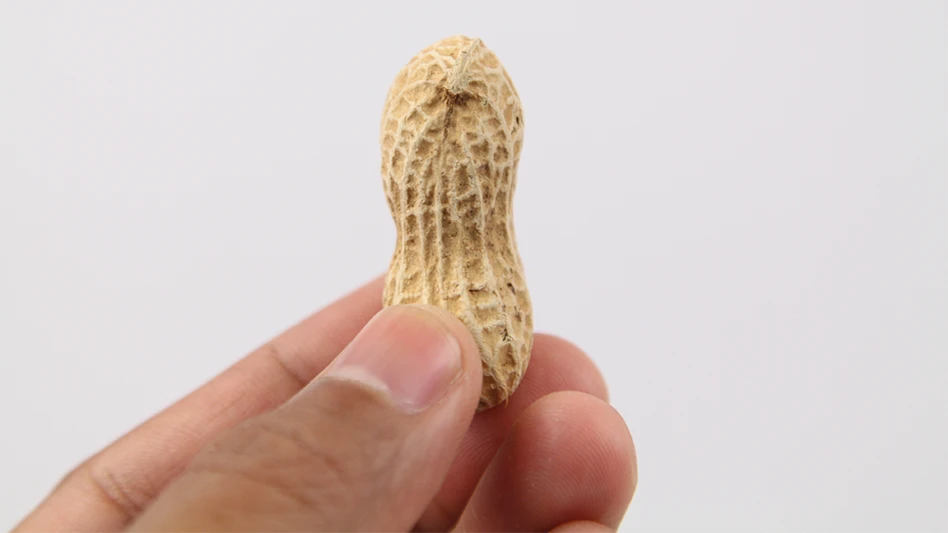Editor’s Note: Jennifer McEntire is guest author for this month’s Legislative Update. Prior to joining Leavitt Partners, McEntire spent eight years with the Institute of Food Technologists (IFT), a scientific society where she most recently served as senior staff scientist and director of science & technology projects. As an IFT member, McEntire continues to serve as project director for the organization’s FDA-awarded product-traceability pilots mandated by the Food Safety Modernization Act. This article represents the opinions of the author.
Section 204 of the Food Safety Modernization Act (FSMA) focuses on traceability. This is a really odd section within the act because, compared to some other sections, there are a lot more words, and yet a lot less specificity with respect to what FDA must actually do. Additionally, there seems to be a great amount of misinformation and misunderstanding related to this section among stakeholders. However, what most people do understand is that Congress has required FDA to conduct pilot studies before making any firm decisions with respect to additional record-keeping requirements.
As such, in September 2011, FDA announced that the pilots would be executed by the not-for-profit science society, the Institute of Food Technologists (IFT). Since 1999, IFT has held competitively awarded contracts with FDA, and in 2008, FDA tasked IFT with conducting a landmark study on product tracing. In 2009, IFT completed some work initiated by Harvard University to conduct a mock tomato-tracing pilot. IFT is uniquely qualified to conduct the current pilots (one focusing on produce and another on processed food), and I have the honor of leading these studies.
 Before getting into details on the pilots, it’s critical to lead off by distinguishing tracebacks from recalls (See figure below):
Before getting into details on the pilots, it’s critical to lead off by distinguishing tracebacks from recalls (See figure below):
- In a recall, the flow of information moves from supplier to customer, and the problem is generally known: product may be recalled that was produced within a certain date range, may be within a certain lot code, etc. Recalls are generally initiated and orchestrated by companies.
- Tracebacks are generally initiated and orchestrated by the federal, state, or local government. There is much less information known during a traceback, and the objective is to figure out the problem with enough specificity that a recall is possible. When a traceback begins, investigators may only know that illness is associated with a certain food product. The challenge is to follow the paths of several similar products (e.g., tomatoes) in the hopes that there is some common point where the paths cross which can be further investigated to determine if contamination could have occurred at that point.
Setting Up the Pilots. Now on to the pilots: after collecting input from more than 70 stakeholder organizations through a process involving three public input sessions, a dozen presentations to trade associations and other interested groups, and a two-month period whereby written comments could be submitted, IFT worked with FDA to identify the foods that would be evaluated in the pilots: tomatoes and initially a Kung Pao-style chicken, processed-food product containing spices and peanuts.
From November to January, IFT hustled to enlist the breadth of participants needed to conduct a solid study. IFT worked with numerous individuals to develop the pilots, and a baseline study was conducted to better understand, both quantitatively and qualitatively, the issues and challenges associated with product tracing today.
Kung Pao chicken, whether frozen or dry, is not the most common product, but ultimately, two brands volunteered to participate. For one, IFT was able to engage parts of the downstream supply chain; for the other, the manufacturer solicited participation from its upstream supply chain. A peanut butter manufacturer expressed interest in participating, and IFT was able to encourage its main upstream supplier and a few downstream carriers to participate.
Ultimately, the tomato pilot involved multiple growers, in both the U.S. and Mexico, including several repackers, many distributors, three fresh-cut processors, a couple wholesalers, and several foodservice outlets and retailers. The enthusiasm with which so many members of the tomato industry embraced this pilot was encouraging, and the inclusion of so many firms, with differing systems, processes, and philosophies around tracing, allows a number of characteristics to be evaluated.
Constructing the Pilots. For both pilots, IFT spent time with each firm, either on the phone or during a visit, to learn about the companies and their current recordkeeping practices. Similar to many conversations we’ve had over the years, many companies viewed the pilots from the perspective of a recall rather than a traceback. In actually running the scenarios, many still referred to them as “mock recalls.” In any case, we learned that the systems used by firms to capture and communicate traceback information vary widely, and part of our study is to explore how these differences impact the ability to rapidly and effectively trace products.
In order to construct the actual “test scenarios,” IFT worked with a diverse group of individuals to clearly identify all the key questions and issues that should be tested, either qualitatively or quantitatively, in the pilots. IFT engaged state traceback investigators and industry experts to help develop a number of different hypothetical scenarios, specifying the locations where people may have shopped or gotten ill, date ranges of interest, etc., and these were shared with FDA. Constructing these scenarios was a tricky process because one needs to have intimate knowledge of supply chains in order to plant those “needles in the haystacks,” and, at the same time, can’t simply ask participants for that information as that would void the surprise elements of the tests.
Conducting the Pilots. Participating firms responded to the scenarios with the information requested to trace the products, and IFT documented response time, type, quality, and format of information, as well as other factors. IFT is currently correlating the firms’ practices with their performance in the pilots so as to identify the processes and practices that enabled rapid tracing (with respect to both the submission of information by firms and the analysis of information by IFT). Deloitte Consulting will then evaluate the costs associated with those practices that were shown to result in effective, rapid tracing, and these costs will be dependent on the firm’s point in the supply chain as well as its size.
Finally, IFT was charged with exploring how these data could be better visualized and manipulated through the use of collaboration platforms which are being provided by third-party technology providers. While FDA cannot mandate a specific technology be used, IFT is interested in learning the characteristics of systems that may be useful for either companies or regulators to consider as they seek to assimilate tracing data.
Once IFT submits the final report to FDA on June 6, FDA will have just under a month to report to Congress on the findings of the pilots and the agency’s recommendations for improving traceability. IFT is hopeful that after that time, FDA will permit IFT to publish the full findings of these studies. After FDA issues a proposed rule in January 2013 (which would only apply to “high risk foods” – a list that has not yet been released), FDA must hold three public meetings. How regulations may be driven by the pilot findings is entirely up to FDA, but hopefully the pilot report will be on the summer reading list of anyone interested in food safety.
To find out more about this project and other product tracing work being conducted by IFT, visit www.ift.org/traceability.

Explore the April 2012 Issue
Check out more from this issue and find your next story to read.
Latest from Quality Assurance & Food Safety
- Nestlé Opens Arizona Beverage Factory and Distribution Center
- Ingredion Invests $100 Million in Indianapolis Plant to Improve Efficiency, Enable Texture Solutions Growth
- Eagle Unveils Redesigned Pipeline X-ray System
- USDA Invests Up To $1 Billion to Combat Avian Flu, Reduce Egg Prices
- Washington Cats Confirmed with HPAI as Investigation into Contaminated Pet Food Continues
- USDA Confirms Bird Flu Detected in Rats in Riverside
- Kyle Diamantas Named FDA’s Acting Deputy Commissioner for Human Foods
- QA Exclusive: Food Safety Leaders React to Jim Jones’ Departure, FDA Layoffs





